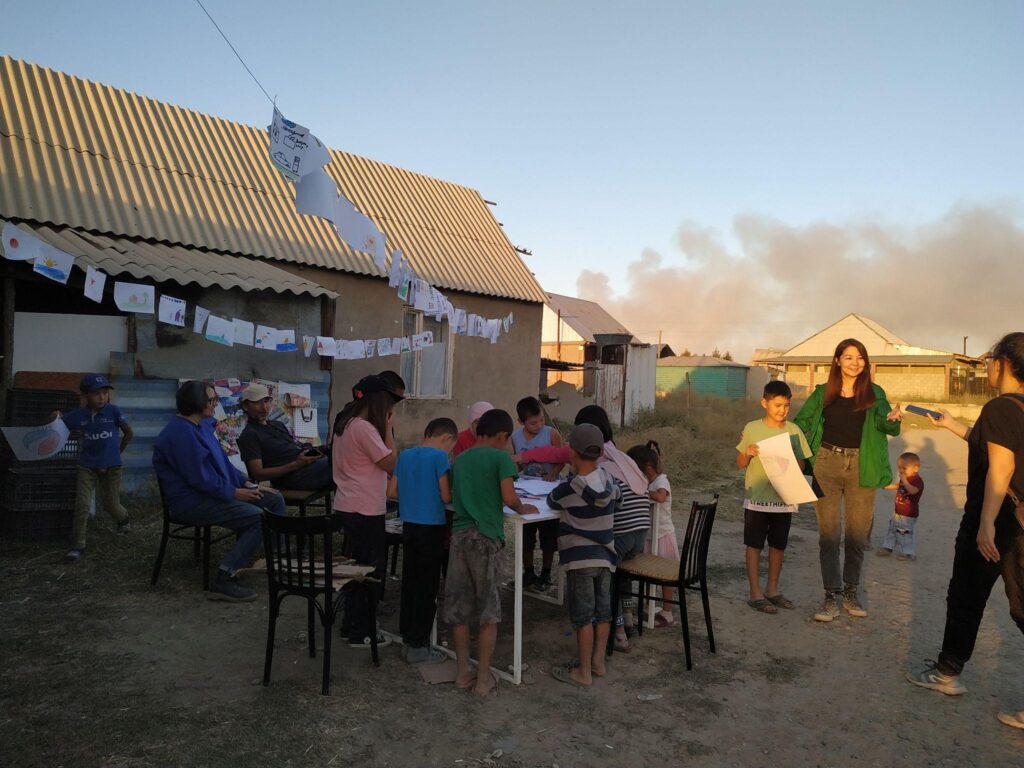The answer is not mega nonprofits or global politicians
How can we build a more empathetic world?

The United States is currently facing an unprecedented plethora of foreign relations crises — standing up to Russian aggression in Ukraine, China’s ambitions for Taiwan, and the increasing global slide towards authoritarianism. There still remain 56 of the 186 ambassador posts abroad unfilled or pending. At the same time, the country has never been so extremely divided politically, economically or socially. American civil society is in crisis, and this reverberates around the planet.
Our work at CEC ArtsLink — supporting transnational artist mobility — has never been harder, nor so vital. The current context is shockingly reminiscent of the Cold War origins of the organization — bolstering citizen exchange between the U.S. and the U.S.S.R. to facilitate dialogue and understanding between people in the face of government intransigence. Since its inception, our programming seeks to break down these barriers, reaching participants in 58 countries on five continents.
Socially engaged artists, whose work directly impacts individual citizens or community groups offer a potent form of cultural diplomacy, connecting people and encouraging open dialogue and creative thinking. The empathy and understanding this fosters can create amity across generations and cultures. The positive impact can be life-changing and lifelong. We still receive letters from Americans who traveled to the USSR with our programs in the ’70s, still grateful for an experience that completely changed their perspective and worldview.

The 2008 economic crisis precipitated significant U.S. introspection, addressing a myriad of domestic issues, particularly poverty, housing and unemployment. Since then, the investment in transnational cultural mobility, already small, has rapidly declined. Of the nine major Foundations supporting international cultural mobility then, only three continue to do so, the largest of which, the Trust for Mutual Understanding, has a budget for culture of just $1 million. For comparison, France, with a GDP one seventh of the US, supports international cultural activity with $45.7 million annually. Conversely the National Endowment for the Arts in the US closed its international department in 2013.
This focus on domestic affairs has precipitated a growing social and cultural isolationism from the rest of the world, feeding nationalism, racism and xenophobia and their divisive impacts on U.S. society. This in turn generates even more internal attention, as we seek to address a growing domestic civil society crisis. Yet a critical part of the solution lies beyond our borders. We need to actively re-engage with the rest of the planet, not just to address looming threats such as the global existential climate emergency, but also to exchange ideas and perspectives, values and especially…yes, culture.

Our work at CEC ArtsLink continues to demonstrate that socially engaged artists working within communities bring people together, enable the sharing of values and perspectives, and help build real understanding between people. This is even more powerful when that artist is from another place, another culture, another identity, another geography. The transnational artist is uniquely placed to foster an empathy and openness that can gently but powerfully confront assumptions and prejudices and build a real human connection beyond political borders.
I am not advocating for the old cultural exchange models of touring existing productions and cultural products, they are unsustainably expensive and carbon generating. The future is no longer in the 10 shows in 10 cities in 14 days model, but rather lies in long term artist residencies, embedded in a community or neighborhood, engaging people, building dialogue, sharing ideas and creating new artworks together. CEC ArtsLink does just this by inviting artists to participate in a multi-year residency program that incorporates online research, a project in the U.S. and a culminating project in the artist’s home country. Many artists around the world, marginalized or ignored by established arts institutions, are already seeking to work this way, sustaining themselves and supporting each other and the communities in which they live and work. We need to better support them in re-imagining and rebuilding civil society around the world, one artist at a time, one community at a time.



